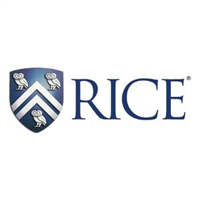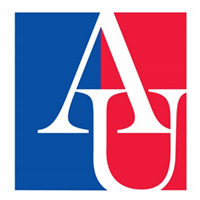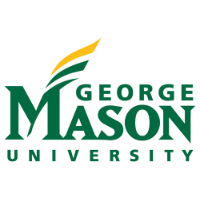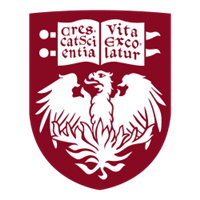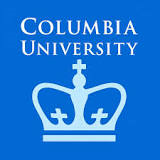What do they do?
Plan, develop, or conduct surveys. May analyze and interpret the meaning of survey data, determine survey objectives, or suggest or test question wording. Includes social scientists who primarily design questionnaires or supervise survey teams.
Also known as:
Data Analyst, Field Interviewer, Market Survey Representative, Methodologist, Public Opinion Analyst, Research Associate, Research Fellow, Research Interviewer, Survey Methodologist, Survey Research Consultant, Survey Researcher, Survey Statistician, Telephone Interviewer
-
4.8%
Change
Ranks #24 in job growth rate20Job Openings
Ranks #21 in net job growth
-
Rice University
Houston, TX
-
American University
Washington, DC
-
George Mason University
Fairfax, VA
-
University of Chicago
Chicago, IL
-
Columbia University in the City of New York
New York, NY
Looking for colleges that offer a specific major? Use the College Match Tool to find your best-matched schools and discover your estimated Net Price!
- Doctorate or Professional Degree (16%)
- Master's degree (42%)
- Bachelor's degree (34%)
- Associate's degree (4%)
- Some college, no degree (3%)
- High school diploma equivalent (1%)
- Less than high school diploma (1%)
Most Popular Majors that prepare Survey Researchers
-
#1
-
Degrees Granted
492
-
Female Students
175
-
Male Students
317
-
Median Starting Salary
$57,400
-
-
#2
-
Degrees Granted
263
-
Female Students
96
-
Male Students
167
-
Median Starting Salary
$53,900
-
-
#3
-
Degrees Granted
21
-
Female Students
6
-
Male Students
15
-
Median Starting Salary
$52,100
-
-
#4
-
Degrees Granted
18
-
Female Students
10
-
Male Students
8
-
Median Starting Salary
$53,900
-
-
#5
-
Degrees Granted
7
-
Female Students
3
-
Male Students
4
-
Median Starting Salary
$57,200
-
People in this career often have these skills:
- Critical Thinking - Using logic and reasoning to identify the strengths and weaknesses of alternative solutions, conclusions, or approaches to problems.
- Reading Comprehension - Understanding written sentences and paragraphs in work-related documents.
- Active Listening - Giving full attention to what other people are saying, taking time to understand the points being made, asking questions as appropriate, and not interrupting at inappropriate times.
- Writing - Communicating effectively in writing as appropriate for the needs of the audience.
- Speaking - Talking to others to convey information effectively.
- Complex Problem Solving - Identifying complex problems and reviewing related information to develop and evaluate options and implement solutions.
- Mathematics - Using mathematics to solve problems.
- Judgment and Decision Making - Considering the relative costs and benefits of potential actions to choose the most appropriate one.
- Active Learning - Understanding the implications of new information for both current and future problem-solving and decision-making.
People in this career often know a lot about:
- English Language - Knowledge of the structure and content of the English language including the meaning and spelling of words, rules of composition, and grammar.
- Mathematics - Knowledge of arithmetic, algebra, geometry, calculus, statistics, and their applications.
- Customer and Personal Service - Knowledge of principles and processes for providing customer and personal services. This includes customer needs assessment, meeting quality standards for services, and evaluation of customer satisfaction.
- Administration and Management - Knowledge of business and management principles involved in strategic planning, resource allocation, human resources modeling, leadership technique, production methods, and coordination of people and resources.
- Computers and Electronics - Knowledge of circuit boards, processors, chips, electronic equipment, and computer hardware and software, including applications and programming.
People in this career often have talent in:
- Written Comprehension - The ability to read and understand information and ideas presented in writing.
- Written Expression - The ability to communicate information and ideas in writing so others will understand.
- Inductive Reasoning - The ability to combine pieces of information to form general rules or conclusions (includes finding a relationship among seemingly unrelated events).
- Oral Comprehension - The ability to listen to and understand information and ideas presented through spoken words and sentences.
- Oral Expression - The ability to communicate information and ideas in speaking so others will understand.
- Deductive Reasoning - The ability to apply general rules to specific problems to produce answers that make sense.
- Mathematical Reasoning - The ability to choose the right mathematical methods or formulas to solve a problem.
- Number Facility - The ability to add, subtract, multiply, or divide quickly and correctly.
- Near Vision - The ability to see details at close range (within a few feet of the observer).
- Speech Clarity - The ability to speak clearly so others can understand you.
- Information Ordering - The ability to arrange things or actions in a certain order or pattern according to a specific rule or set of rules (e.g., patterns of numbers, letters, words, pictures, mathematical operations).
- Speech Recognition - The ability to identify and understand the speech of another person.
- Problem Sensitivity - The ability to tell when something is wrong or is likely to go wrong. It does not involve solving the problem, only recognizing that there is a problem.
People in this career often do these activities:
- Classify organisms based on their characteristics or behavior.
- Record research or operational data.
- Prepare operational reports.
- Prepare scientific or technical reports or presentations.
- Plan social sciences research.
- Confer with clients to exchange information.
- Collect information from people through observation, interviews, or surveys.
- Direct scientific activities.
- Supervise scientific or technical personnel.
- Conduct research on social issues.
- Write grant proposals.
- Prepare proposals or grant applications to obtain project funding.
- Collaborate on research activities with scientists or technical specialists.
- Train personnel in technical or scientific procedures.
This page includes data from:

 Occupation statistics: USDOL U.S. Bureau of Labor Statistics Occupational Employment Statistics
Occupation statistics: USDOL U.S. Bureau of Labor Statistics Occupational Employment Statistics
 Videos: CareerOneStop, USDOL/ETA and the Minnesota Department of Employment & Economic Development
Videos: CareerOneStop, USDOL/ETA and the Minnesota Department of Employment & Economic Development


